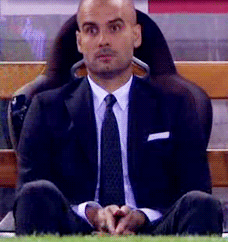

Anxious to see if they can mislead the examiners
"Several months ago we habitually showed the many cases/situations where PTAB thwarted patent grants just before the grant; Section 101 was cited quite a lot back then."Based on another new press release, Bigbelly continues in its patent lawsuits expedition/campaign, using what seems like software patents. Techrights covered this quite a few times in the past. Bigbelly seems like somewhat of a troll. The press release says that "the cloud-connected Bigbelly smart waste and recycling system combines smart, sensing, compacting stations with real-time software." (yes, they say software)
Another litigious firm, 3Shape, uses patents -- apparently software patents included [1, 2] -- to harass a rival. It's doing it again. Its press release says:
3Shape A/S today announced that it has filed a patent infringement complaint asserting its Patent No. US 9,962,244 B2: Focus Scanning Apparatus Recording Color against Align Technology, asserting that Align Technology's ITero Elements intraoral scanner infringes the 3Shape patent.
The District Court has issued an injunction against PPG and its principals, officers, directors, shareholders, employees, affiliates, agents, successors and assigns are, as of May 9, 2018, enjoined from making, using, selling, importing, or offering motion sensor hardware, software and/or designs that operate (and/or would enable products to operate) in the same or substantially similar manner as the PPG technology accused of infringing multiple claims for U.S. Patent No. 8,903,521.This injunction shall continue until the expiration of the ’521 patent or until modified by the Court.
"We certainly hope that examiners know better than hype waves and buzzwords; software remains software (code), no matter what label/marketing term one 'slaps' onto it."We should probably note that Alice-dodging has become rather common a practice -- one that we'll cover separately in a later post. Among the tricks? Having software disguised using "AI", "Internet of Things", or "blockchain" hype (there are many others). Here is a new example of it -- one wherein bunk patents and likely worthless patents are painted/framed as "blockchain". On April 24th the patent maximalists wrote about "blockchain patent trends" (basically software patents). "Johan StÃÂ¥hlberg and Isabel Cantallops Fiol of Valea AB consider developments in the field of blockchain patents, examining the number of blockchain patents applied for and granted in various jurisdictions and fields," said the summary. Weeks later colleagues like Karry Lai in Hong Kong wrote about "blockchain and AI". "The chief IP counsel of the fintech leader tells Managing IP about the challenges of blockchain and AI patent filing," says the summary. They actively promote all this hype and they avoid speaking about software (which is, inherently, what all those things boil down to). Software patents are bunk, even if one labels algorithms “AI” or "blockchain" or whatever.
A few days ago Susan Y. Tull from Finnegan (Finnegan, Henderson, Farabow, Garrett & Dunner LLP) wrote about "machine learning" and said that “[n]ewly published patent application and granted patents reveal applications of artificial intelligence software” (notice the word software).
She correctly attributed this kind of 'trick' to IBM, which nowadays calls many of its software patents "cloud" or "AI" (we covered this before). To quote:
In 2017, IBM received a patent for drug discovery using machine learning.
[...]
Software and software applications are increasingly being applied to the medical device and health tracking fields. Apple recently obtained a patent directed to an “electronic device that computes health data.” U.S. Patent No. 9,723,993 is directed to an electronic device including a camera and sensors to compute the health data of the user. Of note, the patent’s illustrations show Apple’s iPhone performing this function. Oxygen saturation, pulse rate, and perfusion index are among the tracked conditions identified in the patent.